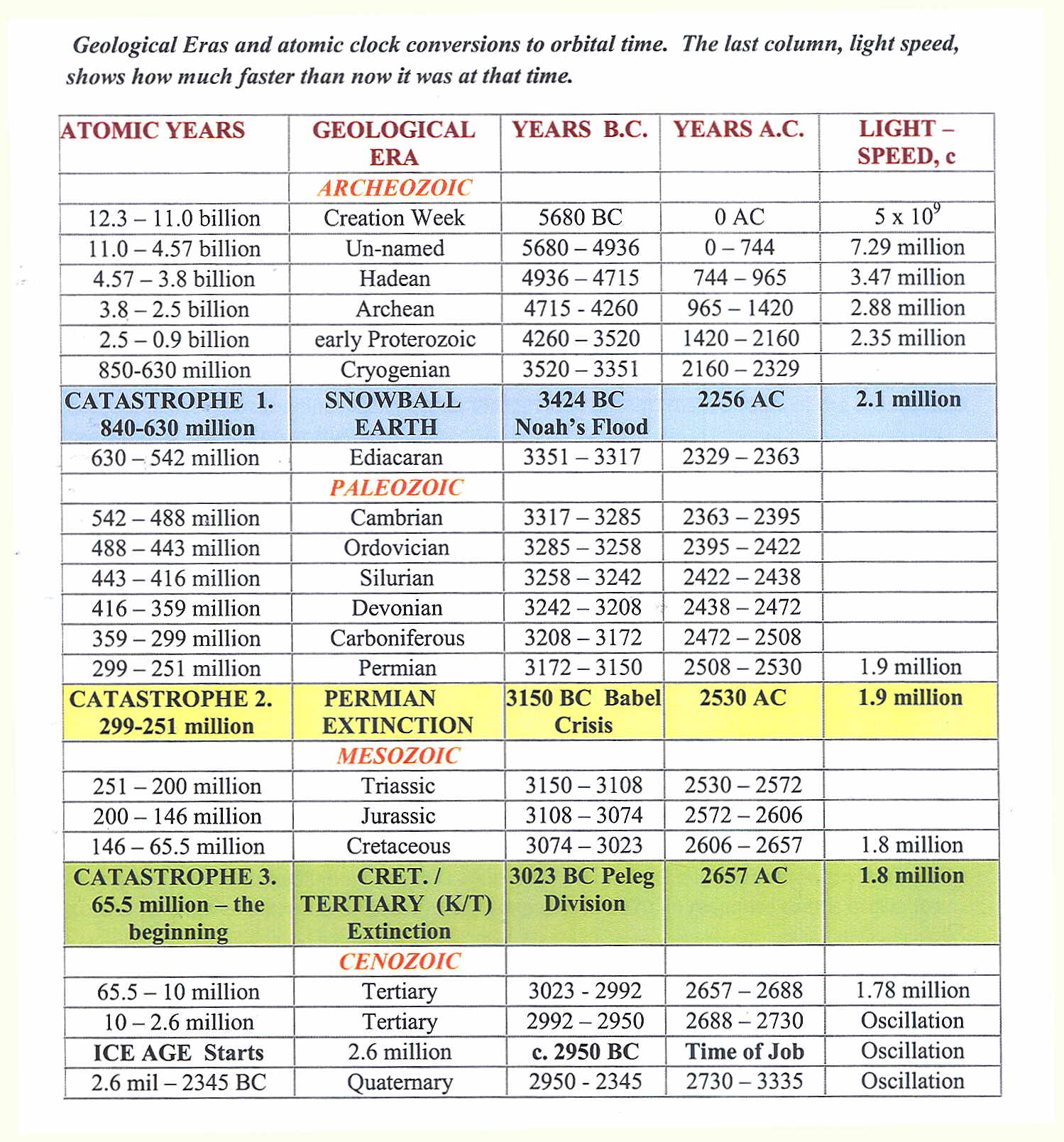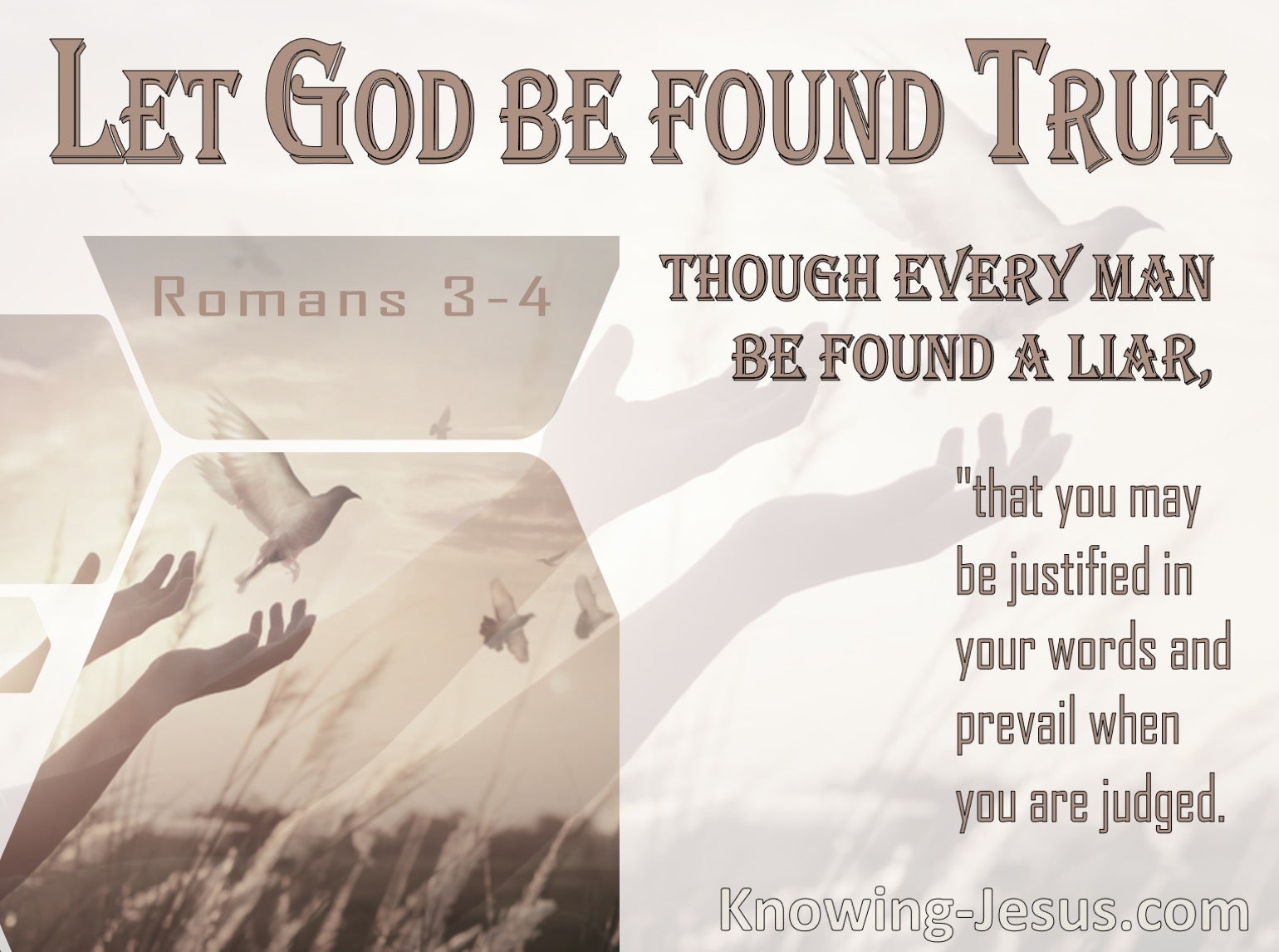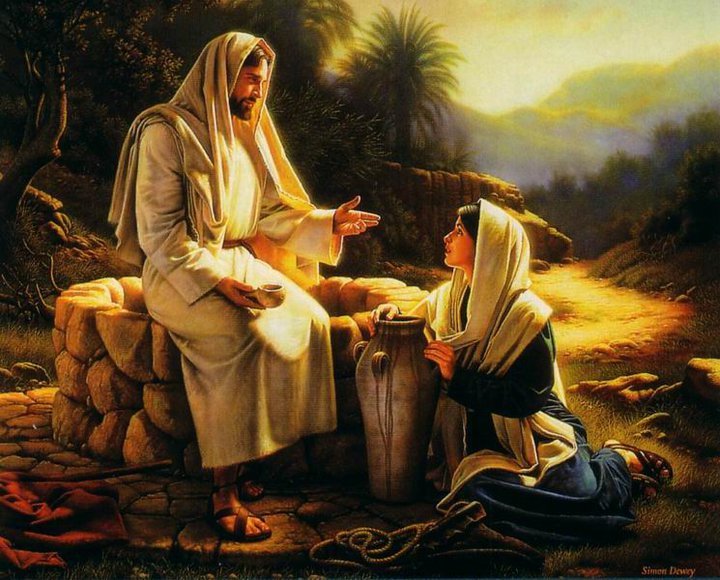
An amazing jump in time can be seen in the transition between the Old Covenant lifestyle of John the Baptist and the New Covenant era ushered in by Jesus's cousin, John the Baptist. Three big sections of the Bible, Mark 1:1-15, Luke 7, and Matthew 11 are included below so you won't miss the context.
 Two Joints in Time bracket the time period we live in now with previous ages since the creation, and with ages yet to come. In the present age, for 2000 years now, God's overarching purpose has been calling out a gentile Bride for His Son Jesus. Especially distinctive is that the grand program for the nation of Israel has been "side-tracked" during this time. The image here is of two railroad tracks, one the main line for the fast express train, and a side track where the slow freight could wait until the express train had zoomed through town. I believe I first heard this illustration from J. Vernon McGee.
Two Joints in Time bracket the time period we live in now with previous ages since the creation, and with ages yet to come. In the present age, for 2000 years now, God's overarching purpose has been calling out a gentile Bride for His Son Jesus. Especially distinctive is that the grand program for the nation of Israel has been "side-tracked" during this time. The image here is of two railroad tracks, one the main line for the fast express train, and a side track where the slow freight could wait until the express train had zoomed through town. I believe I first heard this illustration from J. Vernon McGee.
 Everyone is quite to used to living in the "dispensation" of the church age. It's lasted two thousand years now! (AD 30 to AD 2020?). Most everyone has forgotten (or never knew) that God has not always managed the earth the same way. Quite a few tasks are done from His Left Hand! So far He has kept a low profile with few shows of power or glory.
Everyone is quite to used to living in the "dispensation" of the church age. It's lasted two thousand years now! (AD 30 to AD 2020?). Most everyone has forgotten (or never knew) that God has not always managed the earth the same way. Quite a few tasks are done from His Left Hand! So far He has kept a low profile with few shows of power or glory.
A large topic of theology in evangelical churches a century ago was "Dispensationalism." Quite a number of fine Bible scholars devoted their lives to understanding these apparent discontinuities in time and differing seasons, all under the one unchanging Lord. My first Bible in 1962 was a King James Version with the Scofield Reference Notes. (Some of us felt the notes were supposed to be memorized along with our favorite verses of the Bible.)
There are indeed glaring breaks in God's Management of life on earth which stand out when you look for them. The Fall of Man and our exclusion from the Garden is one, the Flood of Noah is another. The giving of the Law to Moses is a big turning point in history. The death, burial and resurrection of Jesus is by far the biggest joint in time of all. The point here: God has not always dealt with our race the same way.
After Jesus was raised from the dead, Pentecost followed (the birth of the church 50 days later). The next two events on God's calendar scheduled are the Rapture of the Church, the Second Advent of Jesus to earth as King, then His Millennial rule from Jerusalem. Finally an entire new creation. God has His own schedule, He is not beholden to events going on down here with kings, tycoons, potentates. Nor Angels either.
Here is one example of a big change which Jesus spoke about:
‘Listen to another parable. There was a landowner who planted a vineyard, put a fence around it, dug a wine press in it, and built a watch-tower. Then he leased it to tenants and went to another country. When the harvest time had come, he sent his slaves to the tenants to collect his produce. But the tenants seized his slaves and beat one, killed another, and stoned another. Again he sent other slaves, more than the first; and they treated them in the same way. Finally he sent his son to them, saying, “They will respect my son.” But when the tenants saw the son, they said to themselves, “This is the heir; come, let us kill him and get his inheritance.” So they seized him, threw him out of the vineyard, and killed him. Now when the owner of the vineyard comes, what will he do to those tenants?’They said to him, ‘He will put those wretches to a miserable death, and lease the vineyard to other tenants who will give him the produce at the harvest time.’
Jesus said to them, ‘Have you never read in the scriptures:
“The stone that the builders rejected
has become the cornerstone;
this was the Lord’s doing,
and it is amazing in our eyes”?
Therefore I tell you, the kingdom of God will be taken away from you and given to a people that produces the fruits of the kingdom. The one who falls on this stone will be broken to pieces; and it will crush anyone on whom it falls.’ (Matthew 21:33-43)
The seasons are the joints or articulations in the times, the critical, epoch-making periods, foreordained of God, when all that has been slowly, and often without observation, ripening through long ages, is mature and comes to the birth in grand, decisive events which constitute at once the close of one period and the commencement of another. --Archbishop Trench So when they had come together, they asked Jesus, ‘Lord, is this the time when you will restore the kingdom to Israel?’ He replied, ‘It is not for you to know the times (chronos) or seasons (kairos) that the Father has set by his own authority. But you will receive power when the Holy Spirit has come upon you; and you will be my witnesses in Jerusalem, in all Judea and Samaria, and to the ends of the earth.’ When he had said this, as they were watching, he was lifted up, and a cloud took him out of their sight. While he was going and they were gazing up towards heaven, suddenly two men in white robes stood by them. They said, ‘Men of Galilee, why do you stand looking up towards heaven? This Jesus, who has been taken up from you into heaven, will come in the same way as you saw him go into heaven.’ (Acts 1:6-10) |
A major change of dispensations takes place during the two lives of these cousins, both 30 years old. Please read all three chapters below and look for the clues.
|
Luke 7
After Jesus had finished all his sayings in the hearing of the people, he entered Capernaum. A centurion there had a slave whom he valued highly, and who was ill and close to death. When he heard about Jesus, he sent some Jewish elders to him, asking him to come and heal his slave. When they came to Jesus, they appealed to him earnestly, saying, ‘He is worthy of having you do this for him, for he loves our people, and it is he who built our synagogue for us.’ And Jesus went with them, but when he was not far from the house, the centurion sent friends to say to him, ‘Lord, do not trouble yourself, for I am not worthy to have you come under my roof; therefore I did not presume to come to you. But only speak the word, and let my servant be healed. For I also am a man set under authority, with soldiers under me; and I say to one, “Go”, and he goes, and to another, “Come”, and he comes, and to my slave, “Do this”, and the slave does it.’ When Jesus heard this he was amazed at him, and turning to the crowd that followed him, he said, ‘I tell you, not even in Israel have I found such faith.’ When those who had been sent returned to the house, they found the slave in good health. Soon afterwards he went to a town called Nain, and his disciples and a large crowd went with him. As he approached the gate of the town, a man who had died was being carried out. He was his mother’s only son, and she was a widow; and with her was a large crowd from the town. When the Lord saw her, he had compassion for her and said to her, ‘Do not weep.’ Then he came forward and touched the bier, and the bearers stood still. And he said, ‘Young man, I say to you, rise!’ The dead man sat up and began to speak, and Jesus gave him to his mother. Fear seized all of them; and they glorified God, saying, ‘A great prophet has risen among us!’ and ‘God has looked favorably on his people!’ This word about him spread throughout Judea and all the surrounding country. The disciples of John reported all these things to him. So John summoned two of his disciples and sent them to the Lord to ask, ‘Are you the one who is to come, or are we to wait for another?’ When the men had come to him, they said, ‘John the Baptist has sent us to you to ask, “Are you the one who is to come, or are we to wait for another?” ’ Jesus had just then cured many people of diseases, plagues, and evil spirits, and had given sight to many who were blind. And he answered them, ‘Go and tell John what you have seen and heard: the blind receive their sight, the lame walk, the lepers are cleansed, the deaf hear, the dead are raised, the poor have good news brought to them. And blessed is anyone who takes no offence at me.’ When John’s messengers had gone, Jesus began to speak to the crowds about John: ‘What did you go out into the wilderness to look at? A reed shaken by the wind? What then did you go out to see? Someone dressed in soft robes? Look, those who put on fine clothing and live in luxury are in royal palaces. What then did you go out to see? A prophet? Yes, I tell you, and more than a prophet. This is the one about whom it is written, ‘To what then will I compare the people of this generation, and what are they like? They are like children sitting in the market-place and calling to one another, One of the Pharisees asked Jesus to eat with him, and he went into the Pharisee’s house and took his place at the table. And a woman in the city, who was a sinner, having learned that he was eating in the Pharisee’s house, brought an alabaster jar of ointment. She stood behind him at his feet, weeping, and began to bathe his feet with her tears and to dry them with her hair. Then she continued kissing his feet and anointing them with the ointment. |
|

(Strong's #3622 — Noun Feminine — oikonomia — oy-kon-om-ee'-ah ) Primarily signifies "the management of a household or of household affairs" (oikos, "a house," nomos, "a law"); then the management or administration of the property of others, and so "a stewardship," Luke 16:2-4; elsewhere only in the Epistles of Paul, who applies it (a) to the responsibility entrusted to him of preaching the Gospel, 1 Corinthians 9:17 (RV, "stewardship," AV, "dispensation"); (b) to the stewardship committed to him "to fulfill the Word of God," the fulfillment being the unfolding of the completion of the Divinely arranged and imparted cycle of truths which are consummated in the truth relating to the Church as the Body of Christ, Colossians 1:25 (RV and AV, "dispensation"); so in Ephesians 3:2 , of the grace of God given him as a stewardship ("dispensation") in regard to the same "mystery;" (c) in Ephesians 1:10; 3:9 , it is used of the arrangement or administration by God, by which in "the fullness of the times" (or seasons) God will sum up all things in the heavens and on earth in Christ. In Ephesians 3:9 some mss. have koinonia, "fellowship," for oikonomia, "dispensation." In 1 Timothy 1:4 oikonomia may mean either a stewardship in the sense of (a) above, or a "dispensation" in the sense of (c). The reading oikodomia, "edifying," in some mss., is not to be accepted. See STEWARDSHIP. Note: A "dispensation" is not a period or epoch (a common, but erroneous, use of the word), but a mode of dealing, an arrangement, or administration of affairs. Cp. oikonomos, "a steward," and oikonomeo, "to be a steward." Dispensationalism Overview
|
2. The Fall to the Flood (5692-3536 BC) 3. Gentile Dominion of the World Tower of Babel (3182-2628) Continental Breakup (3005-2666) 4. Abraham and Israel called (2309-2129) Isaac (2204-2024) Jacob (2144-1997) Moses and the Giving of the Law (1500 BC) 5. Messiah’s First Advent (BC 5-AD 30) 6. The Bride of Christ called out (30 AD-2020 AD) 7. Israel’s Triumph (12+7 years) (2039-3029 AD?) 8. The Millennium 9. A New Creation |
When any person “dies” physically the person (soul and spirit) exits earth time and “instantly” time travels to the next scheduled event in the unseen realm. In thinking about this, forget for a moment our usual understanding of time. It is the body which keeps us anchored in linear earth time. Events in the spiritual realm are not simultaneous with events in history for a time traveler. In linear time as understood by an observer trapped on earth, the Rapture and The Last Judgment are understand as ~1007 years apart. A non believer, upon dying, does not enter limbo, a waiting room, and stay there for the interval in history between his physical death and the Last Judgment. The physical body is what locks us into earth time. At death we (soul and spirit) shed the body and time travel to our next appointment. The destination we time travel to is different, of course, depending on whether we know Jesus or not. New bodies of one kind or another are already waiting us at our final destination. Concepts such as limbo, purgatory, an intermediate-state body, soul-sleep, waiting rooms, holding pens, or long delays in transit come about because we don't avail ourselves of revelation from God concerning the unseen realm.
Jesus said to the thief on the Cross “this day you will be with me in Paradise.” The forgiven thief was immediately there at the destination, along with Jesus, as soon as he died. The Greek New Testament word Harpazo (rapture), by the way, means to seize by force!
 Jump starting an old paradigm church now is not a good idea. Assembling together is! Small groups are awesome (as Chuck Missler explains). The early church before Constantine (320 AD) had no buildings, no clergy, no hierarchy, no org chart, no paid support staff. The early Christians knew one another, prayed together, helped each other survive in a hostile would.
Jump starting an old paradigm church now is not a good idea. Assembling together is! Small groups are awesome (as Chuck Missler explains). The early church before Constantine (320 AD) had no buildings, no clergy, no hierarchy, no org chart, no paid support staff. The early Christians knew one another, prayed together, helped each other survive in a hostile would.
The false church will flourish for a time after the Rapture but soon will be morphed into the coming one world religion.
The Rapture has not quite happened yet on earth, but God is doing much now to ease us into the coming Tribulation, the Judgments, the Marriage of Christ to His true church, the Final Redemption for Israel and so on. The Rapture will mean big adjusting by many followers of Christ who were expecting lots of personal rewards at "pie in the sky when I die." We are to meet together now to discuss the business of the King of kings — the king’s dealings with the world and preparation for the marriage supper of the Lamb. We are to love one another as Christ loved the church and gave himself for her.
“And let us consider one another in order to stir up love and good works, not forsaking the assembling of ourselves together, as is the manner of some, but exhorting one another, and so much the more as you see the Day approaching.” (Hebrews 10:24-25)
Jesus’ displeasure with the church at the end of the age is especially clear in His letter to the church of Laodicea.
There are followers of Jesus to be found in each of the seven churches, probably most are from the last church of the seven. Remember: For two thousand years Jesus has been building His church and it’s nearly finished now.
The Second Advent will be the epiphaneia (epiphany, outshining) of his parousia (presence). At his parousia the exiled king returns to remain with his beleaguered people who are undercover. Seven years later is the public unveiling of the king, his bride. and the royal retinue. One church, the Church of Philadelphia, passed muster--and there were "overcomers" in each of the Seven Churches of Revelation.
Ephesus: “To him who overcomes I will give to eat from the tree of life, which is in the midst of the Paradise of God.”
Smyrna: “He who overcomes shall not be hurt by the second death.” ’
Pergamos: “To him who overcomes I will give some of the hidden manna to eat. And I will give him a white stone, and on the stone a new name written which no one knows except him who receives it.”
Thyatira: “And he who overcomes, and keeps My works until the end, to him I will give power over the nations—‘He shall rule them with a rod of iron; They shall be dashed to pieces like the potter’s vessels’—as I also have received from My Father; and I will give him the morning star.
“He who has an ear, let him hear what the Spirit says to the churches.”Sardis: “He who overcomes shall be clothed in white garments, and I will not blot out his name from the Book of Life; but I will confess his name before My Father and before His angels.
“He who has an ear, let him hear what the Spirit says to the churches.”Philadelphia: "And he who overcomes, I will make him a pillar in the temple of my God; he will never go out of it. I will write on you the name of my God, and the name of the city of my God, the new Jerusalem that comes down from my God out of heaven, and my own new name."
Laodicea: “Behold, I stand at the door and knock. If anyone hears My voice and opens the door, I will come in to him and dine with him, and he with Me. To him who overcomes I will grant to sit with Me on My throne, as I also overcame and sat down with My Father on His throne.”


"Scoffers will come in the last days, walking according to their own lusts,
and saying, “Where is the promise of His coming?
For since the fathers fell asleep, all things continue as they were from the beginning of creation.”
For this they willfully forget: that by the word of God the heavens were of old, and the earth standing out of water and in the water,
by which the world that then existed perished, being flooded with water.
But the heavens and the earth which are now preserved by the same word, are reserved for fire until the day of judgment and perdition of ungodly men.
But, beloved, do not forget this one thing, that with the Lord one day is as a thousand years, and a thousand years as one day.
The Lord is not slack concerning His promise, as some count slackness, but is longsuffering toward us,
not willing that any should perish but that all should come to repentance.
But the day of the Lord will come as a thief in the night, in which the heavens will pass away with a great noise,
and the elements will melt with fervent heat; both the earth and the works that are in it will be burned up.
Therefore, since all these things will be dissolved, what manner of persons ought you to be in holy conduct and godliness,
looking for and hastening the coming of the day of God, because of which the heavens will be dissolved, being on fire, and the elements will melt with fervent heat?
Nevertheless we, according to His promise, look for new heavens and a new earth in which righteousness dwells.“ (2 Peter 3:3-13)

Above chart from from Barry Setterfield

James Hutton and Charles Lyell, developed the theory of uniformitarianism, presenting it in 1785. It was the idea that Earth has always changed in uniform ways and that "the present is the key to the past." The principle of uniformitarianism is still today a common secular assumption about Earth's history. In geology, catastrophism theories that the Earth has largely been shaped by sudden, short-lived, violent events, possibly worldwide in scope. This contrasts with uniformitarianism, according to which slow incremental changes, such as erosion, brought about all the Earth's geological features. Catastrophism and Scientific Naturalism are related topics. Naturalism is the belief that only natural laws and forces (as opposed to supernatural ones) operate in the universe. All events, therefore, find their adequate explanation within nature itself. These secular views ignore both the revelation of God in history and in the Bible.
Dispensationalism assumes the Bible is the very Word of God, accurate and reliable. The Bible does not give us a date when God created he universe but we can discover when Adam and Eve were brought into being. This is because time is a created entity. See It's About Time,
and The Limits of Science.Above all, the God of the Bible is a personal God who we each and invited to know and relate to. In view of so many secular and religious notions out there it's a good idea to see for yourself.

"Even so we, when we were children,
were in bondage under the elements of the world.
But when the fullness of the time had come,
God sent forth His Son, born of a woman, born under the law,
to redeem those who were under the law,
that we might receive the adoption as sons.
And because you are sons,
God has sent forth the Spirit of His Son into your hearts, crying out,
“Abba, Father!”
Therefore you are no longer a slave but a son,
and if a son, then an heir of God through Christ.” |
(Galatians 4:3-7)

Notes by Lambert Dolphin

Email Welcome
Lambert Dolphin's Home Page (1995)
Library Annex (Articles since 2018)
Old Library
